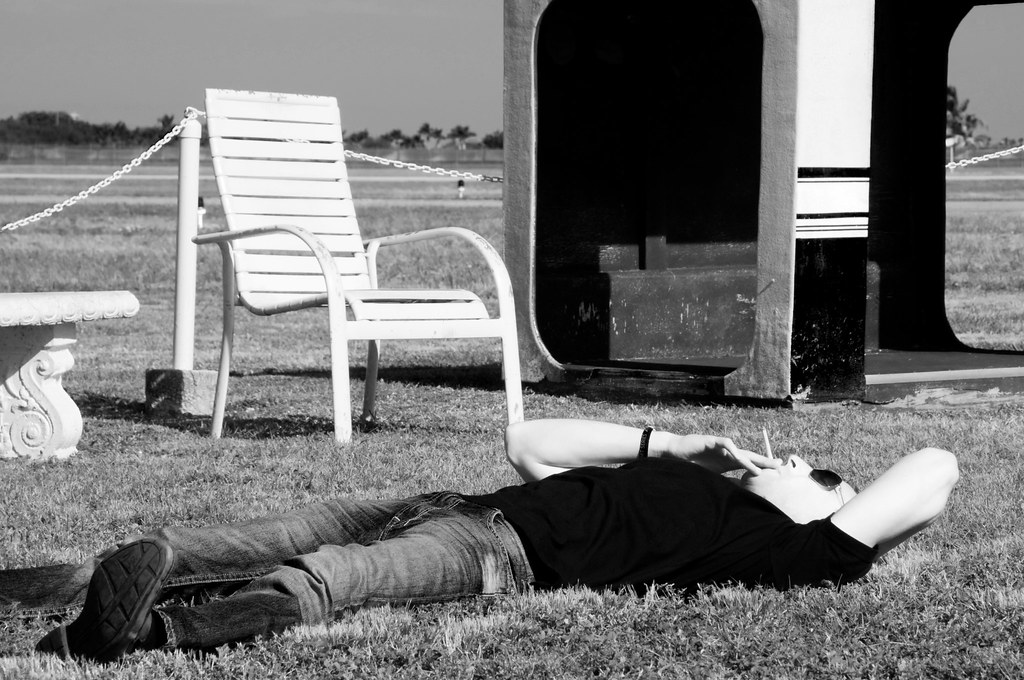 By now, many resolutions have been broken. Radical change is difficult, and it doesn’t happen overnight.
By now, many resolutions have been broken. Radical change is difficult, and it doesn’t happen overnight.
But there is a reliable process for building the right habits. In The 4-Hour Body, Tim Ferriss pulls from lifehacking and game mechanics to break it down.
The 4-Hour Body may seem like hype, but at its core it’s a disciplined approach to physical transformation. Whether or not you take Tim’s specific advice on weight loss/karmic sex/whatever, his approach is a guide toward coaxing yourself into new behaviors.
Aristotle talks a lot about habit, but was rarely prescriptive in his advice around it. Rather, he discussed in detail about making habits of things and how that will change who you are—the whole “we are what we repeatedly do” bit you hear quoted all the time. The 4-Hour Body goes into detail on how to get there.
The meat of the discussion begins on page 58, in “From Photos to Fear.” It starts with a story of someone who lost 40 pounds and went from running barely a mile to several half-marathons. I usually take these with a grain of salt, but it happens to be a story of a mutual friend, and the story was accurate.
Then the book digs into the “four principles of failure-proofing” your transformation:
1. Make it conscious.
2. Make it a game.
3. Make it competitive.
4. Make it small and temporary.
You’ve probably heard of “lifehacking.” Jon Evans credits Tim Ferriss with “promulgating the [lifehacker] ethos to the general population.” And though I’ve written for Lifehacker.com and spoke many-a-time on personal productivity, changing my behavior and that of those around me has always been murky business. “Okay, great, that’s what I should be doing…but I’m going to go back to how I was before.”
And that’s where Tim steps in. He’s taking the measurement ideas that are core to lifehacking and lean startups and throwing in a bit of gamification. And it works.
A Brief Summary of the Points
Make it conscious: establish a baseline for where you are, and find a way to remind yourself of it regularly. When it comes to weight, that means taking a “before” photo and placing it somewhere you’re going to see regularly.
 Make it a game: it’s less about what you measure, and more that you measure at all. Measuring is what makes you aware of what change is taking place. Tim recommends specifically that you track something at least five times to get in the habit of being aware of it. And that game bit is that you give yourself bite-sized goals around it—i.e., track your miles and then aim for 25 in a week, etc. (Say what you want about this, but when I run with my Nike Plus, my times are faster and distances greater. – see chart to the right)
Make it a game: it’s less about what you measure, and more that you measure at all. Measuring is what makes you aware of what change is taking place. Tim recommends specifically that you track something at least five times to get in the habit of being aware of it. And that game bit is that you give yourself bite-sized goals around it—i.e., track your miles and then aim for 25 in a week, etc. (Say what you want about this, but when I run with my Nike Plus, my times are faster and distances greater. – see chart to the right)
Make it competitive: rely on peer pressure, involve other people through websites like DailyBurn, a newsletter to a group of friends, or a regularly scheduled call…preferably where you’re working toward the same thing. (There’s a bit more to this in the book)
Make it small and temporary: don’t set an ambitious short term goal, but start with one part of it. Maybe it’s changing your breakfast. Maybe it’s writing for 15 minutes one day per week. But it’s definitely not trying to take on the whole kahuna at once.
So What About the Rest of the Book…
The 4-Hour Body brings together a lot of different information that are worthwhile to understand. Some complain parts of it are variations on popular science in various fields, but I don’t think most people know enough about those fields or topics.
For instance, I’m familiar with today’s research with carbs and newer theories around long-distance running… but I was woken up on how much bodyfat percentage plays into appearance, things that only a serious weight-lifter would understand as fundamentally as Tim lays out.
The thing is, Tim pulls information from a lot of sources—some popular, some unfamiliar. And he brings them together in a fun way while adding a prescription for taking advantage of them.
In 2007, The 4-Hour Workweek changed my perspective on balance and making a living. I think The 4-Hour Body (along with Born to Run and Good Calories, Bad Calories) will play a big role in my health and energy-level in 2011.
I hope you’ll use pieces of Tim’s formula above and do believe the book is a worthwhile read.


You should really subscribe to Technotheory via ![]() email or rss.
email or rss.



 by Jared Goralnick
by Jared Goralnick










great review! the points are practical and right on. I’ve been eating way too many sweets for many years and it wasn’t until I set the goal of “one treat a day” did the sugar consumption go down (I’ve been a reformed chocoholic for 10 days now). The competitive side is provided by my wife Leslie who rarely eats sweets so I’m trying to mimic her diet somewhat. Radical change IS difficult!
Thanks, Art! I wish you much luck in the chocolate diet…so long as you give in enough to let Leslie offer me those trademark cookies next time I’m in town!
Playing the obligatory Aristotelian troll, I’d like to point out that Aristotle’s exercise habits were fantastic. Even in specifics! :)
Aristotle and his students at Lyceum became known as the Peripatetics because of their way of having a philosophical lecture or conversation while walking outside on pathways. The idea of a carb probably didn’t fit well into Empedocles’ theory of five elements that Aristotle promoted but his virtue of temperance, i.e. resisting desires for the natural appetites to which we are prone to succumb, probably did as good a job as anything can at encouraging someone to manage one’s diet.
Jay, I’ve officially lost all street-cred for my once-upon-a-time philosophy degree. I do think that today’s step-by-step prescriptions are a little different in their clarity than the Ancient Greeks, but you’re right about the specifics being there.
It’s easy sometimes to forget that rarely is the advice we come across new. Instead the best talent these days is in the curation of which advice and insight we surround ourselves with, old and new.
I look forward to more of your insight from time to time!
Tim has some interesting ideas in his book. I eat paleo, so I avoid processed food. I occasionally eat grains but not very often. Some of Tim’s points I don’t agree with. I don’t have a cheat day, I just cheat occasionally, say when I go out for a celebration meal. Paleo has really made a difference to my health. I wasn’t unhealthy before, but I do feel much better now that I did prior to eating paleo.
Even if you don’t always agree with Tim’s advice, it certainly makes you look at your health from a different perspective.